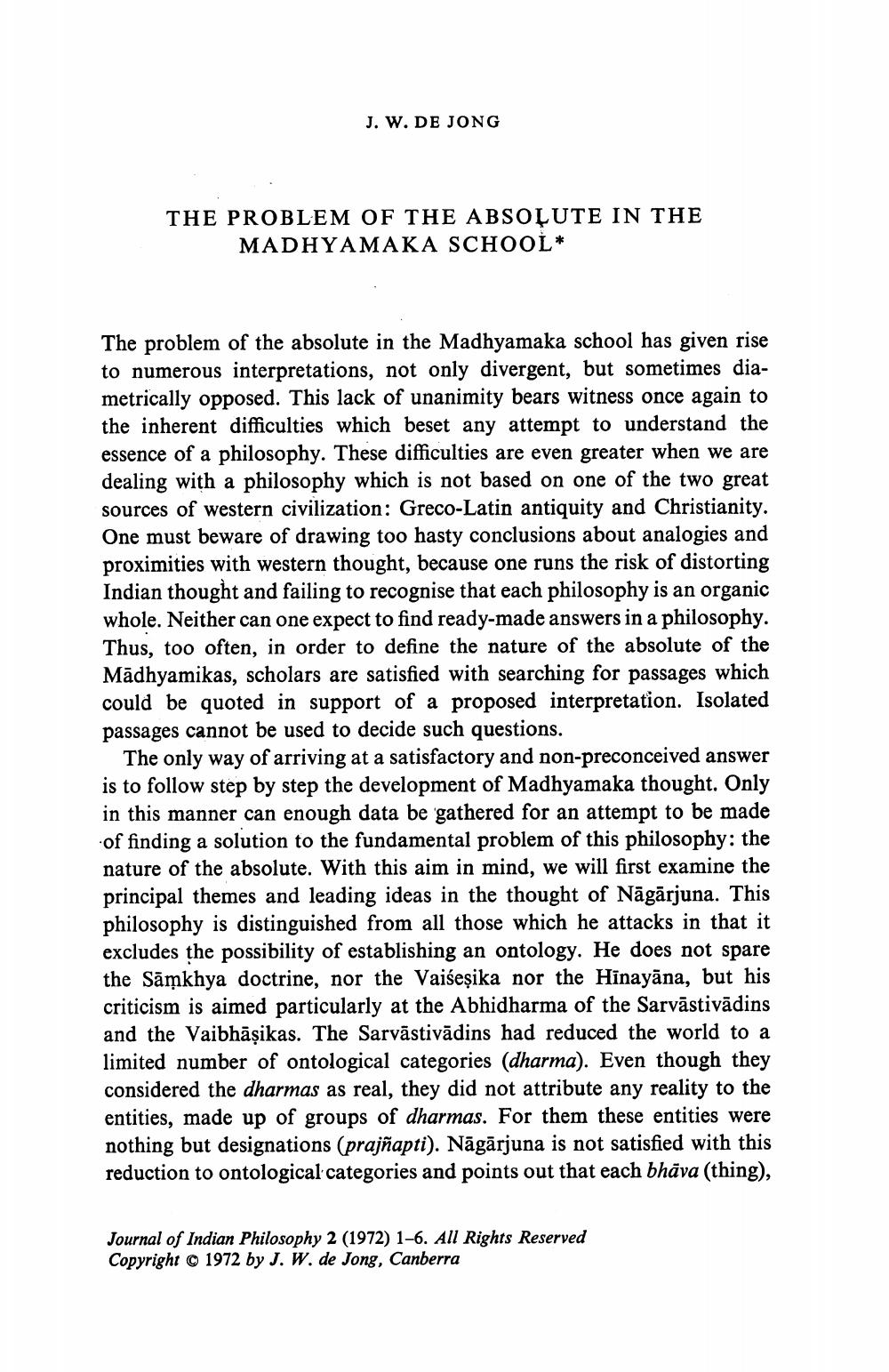Book Title: Problem Of Absolute In Madhyamaka School Author(s): J W De Jong Publisher: J W De Jong View full book textPage 1
________________ J. W. DE JONG THE PROBLEM OF THE ABSOLUTE IN THE MADHYAMAKA SCHOOL* The problem of the absolute in the Madhyamaka school has given rise to numerous interpretations, not only divergent, but sometimes diametrically opposed. This lack of unanimity bears witness once again to the inherent difficulties which beset any attempt to understand the essence of a philosophy. These difficulties are even greater when we are dealing with a philosophy which is not based on one of the two great sources of western civilization: Greco-Latin antiquity and Christianity. One must beware of drawing too hasty conclusions about analogies and proximities with western thought, because one runs the risk of distorting Indian thought and failing to recognise that each philosophy is an organic whole. Neither can one expect to find ready-made answers in a philosophy. Thus, too often, in order to define the nature of the absolute of the Madhyamikas, scholars are satisfied with searching for passages which could be quoted in support of a proposed interpretation. Isolated passages cannot be used to decide such questions. The only way of arriving at a satisfactory and non-preconceived answer is to follow step by step the development of Madhyamaka thought. Only in this manner can enough data be gathered for an attempt to be made of finding a solution to the fundamental problem of this philosophy: the nature of the absolute. With this aim in mind, we will first examine the principal themes and leading ideas in the thought of Nagarjuna. This philosophy is distinguished from all those which he attacks in that it excludes the possibility of establishing an ontology. He does not spare the Samkhya doctrine, nor the Vaiśeşika nor the Hinayana, but his criticism is aimed particularly at the Abhidharma of the Sarvāstivādins and the Vaibhāṣikas. The Sarvästivādins had reduced the world to a limited number of ontological categories (dharma). Even though they considered the dharmas as real, they did not attribute any reality to the entities, made up of groups of dharmas. For them these entities were nothing but designations (prajñapti). Nāgārjuna is not satisfied with this reduction to ontological categories and points out that each bhava (thing), Journal of Indian Philosophy 2 (1972) 1–6. All Rights Reserved Copyright 1972 by J. W. de Jong, CanberraPage Navigation
1 2 3 4 5 6
